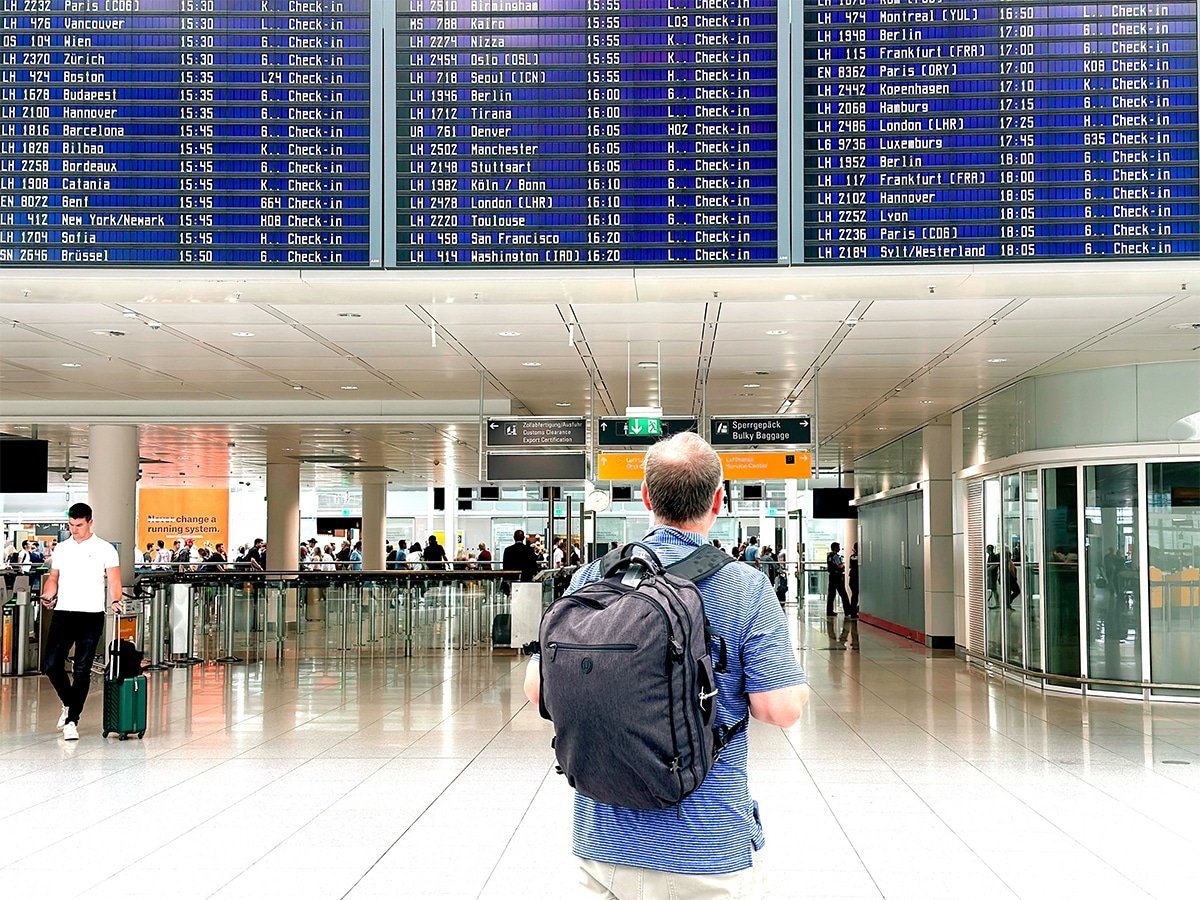This post contains references to products from one or more of our advertisers. We may receive compensation when you click on links to those products. For an explanation of our Advertising Disclosure, visit this page.
Uncertainty is one word we can use to describe this year. It was only six months ago that we were dreaming of the places to visit this year. Instead, we find ourselves staying close to home and taking life one day at a time. We aren’t the only ones readjusting our plans though. Banks are restricting credit card approvals as our work and travel routines experience turbulence. Fortunately, there are a few things you can do to help your chances.
65% Fewer New Credit Card Approvals
Recent research indicates that banks report 65% fewer new credit card applications from April 15 to May 15, 2020, versus last year. If you’re a visual learner, only 2.2 of every 100 people are opening new cards instead of 6.7 out of 100 people in 2019.
This sharp drop isn’t solely because of an enormous swath of people reaching the “5/24 rule” or waiting for better signup bonus offers. While the number of applications can change monthly, a sharp drop in new credit card openings indicates banks are less likely to approve your new application.
Banks tightening the screws on credit card approvals isn’t a big surprise. The crazy fast shift from record-low unemployment to the historic highs have many lenders being cautious. Credit card delinquencies are slowly increasing from their 2015 lows. However, the banks have yet to release updated figures for the pandemic.
While the Cares Act stimulus package includes a $600 weekly federal unemployment benefit until July 31st, most people have less disposable income than before. As states reverse course on their reopening plans due to the rising cases, some businesses have to temporarily close a second time.
Income insecurity will continue to deter banks from being generous with issuing new credit cards and loans.
New Credit Cards Are Harder To Qualify For
Both consumer rewards credit cards and small business credit cards are getting harder to qualify for.
Personal cards may require a higher credit score and annual income than before. Keeping your monthly expenses as low as possible is essential.
A number of data points indicate that some banks are more likely to issue new credit card approvals to current customers. Perhaps you have a current credit card in good standing with Chase, American Express, or Capital One. A better move can be having a checking account that you actively use.
Stricter Business Credit Card Requirements
Business credit cards are also harder to qualify for with most banks. Recent Redditt threads imply banks are making it difficult for new businesses and those with low annual revenues to qualify.
Not too long ago, it wasn’t uncommon to get a business credit card if you were a sole proprietor and earned taxable side hustle income. While approval as a sole proprietor is still possible, don’t expect instant approval like before if you’re a young or tiny business.
Opening a business checking account before getting a credit card lets you build a banking relationship. Switching from a sole proprietorship tax filing status to an LLC or another partnership can improve your approval odds as well.
These are suggestions as the bank representative most likely won’t offer personalized advice to help you get a new business credit card.
How to Apply for a New Credit Card During Coronavirus
Qualifying for a new credit card will be more difficult than six months ago, but it’s not impossible to qualify.
However, you should be more strategic about which credit cards you apply for. For instance, a recent drop in your annual income or a credit score decrease can affect your approval odds for the most exclusive credit cards. Fortunately, there are ways to increase your chances.
Review Your Credit Report for Errors
It’s always important to check your credit report for errors. Now can be an important time if you are refinancing your existing debt to fit your coronavirus spending plan. Your credit reports are free to review weekly at the official government website AnnualCreditReport.com.
Normally, you can only view your credit report for free once a year. But as credit fraud is becoming more common during this global pandemic, checking weekly can help you spot fraud quickly. If you see a reporting error, you must dispute the error with the respective credit bureau.
Related: Best Places To Get A Free Credit Score
Pre-Qualify for Offers
Another smart move is getting credit card pre-approval directly from the bank or by using CardMatch™.
Pre-approval doesn’t guarantee you will qualify for a card, but your approval odds are very high. Requesting pre-approval is free and doesn’t impact your credit score. The bank will show you curated offers that you have the best approval odds for. These cards may also have exciting limited-time bonus offers.
It’s important to note that you must be receiving prescreened credit offers. This is only a potential issue if you opted-out at OptOutPreScreen.com. You can “opt-in” again at the same site.
Expect a Lower Initial Credit Limit
Banks are issuing new credit card applications but your starter credit limit might be smaller than usual. There are still some minimum starting limits though.
Lower starting limits shouldn’t come as a surprise. Many banks are reducing the credit limits for existing credit cards that people rarely use. Reducing limits is common practice but becomes more frequent when a credit crunch seems inevitable.
Making small purchases on your old credit cards might prevent a forced credit limit reduction and the corresponding credit score ding as your total credit utilization increases overnight. In most cases, the only way to reverse a reduction is to manually request a credit score increase. This request involves a hard credit inquiry like when you apply for a new credit card.
Apply for the Best Signup/Welcome Bonuses
Timing your credit card applications is more important than ever. Applying for a new credit card at least once every six months is a great practice. However, you may decide to only apply for one a year due to the stricter application policies if you opened several new accounts shortly before we began sheltering in place.
When applying, focus on cards with the best credit card bonus offers first. Make sure you can qualify for the bonus and earn it.
Summary
Banks have stricter standards for credit card approvals than a few months ago. Following the timeless best practices of boosting your credit score and spacing your applications increase your approval odds. Paying your balance in full each month is also more important than ever to have a clean credit report and to earn rewards instead of paying interest.
FAQs
What is the easiest credit card to get approved for?
Secured credit cards are the easiest type of credit card to get. These cards require an upfront security deposit that’s the same amount as your spending limit, for most applicants. While these cards can earn rewards points on some purchases and build credit, they are impractical for large purchases and once you have good credit.
Co-brand hotel credit cards and airline credit cards are some of the easiest unsecured credit cards (no security deposit necessary) to get. These cards earn travel points for a specific travel loyalty program.
The easiest card to get depends on your credit history and current annual income. Any existing relationship with a bank can also help. You may need to get your first credit card from the bank you have a savings and checking account with. Credit card pre-approval with national banks is a quick way to see what credit card approvals you might qualify for.
What credit score do you need for a credit card?
Premium credit cards that have annual fees of at least $450 and many of the best travel and cash rewards credit cards require an excellent credit score. In most cases, a 740 credit score or above lets you qualify for most rewards credit cards. It’s possible to qualify with a credit score near 700, but the bank may require an additional review.
For co-brand hotel credit cards, airline credit cards, and flexible rewards cards with smaller rewards rates, they have good approval odds with a 650 credit score or higher. Some consider a score above 600 as the start of prime credit or fair credit. Depending on the bank, you might qualify for an unsecured card with a credit of at least 580, but you will have a low spending limit and may not earn any purchase rewards.
If your credit score is below 600, your only option might be a secured credit card. These cards require a refundable security deposit of $500 or less to open an account, but may not have an annual fee. The bank reports your monthly payment activity to the credit bureaus. It is possible to earn rewards points on purchases.
Some banks let you upgrade your secured card to an unsecured version. The bank refunds your security deposit if you choose this option.
Related: Best No Annual Fee Credit Cards
How can I improve my chances of getting approved for a credit card?
Having a clean and positive credit history is the best way to get more credit card approvals. These are some of the best practices to increase your approval odds:
- Pay your current credit card and loan payments in full each month
- Keep your debt-to-income ratio as low as possible
- Maintain a credit utilization ratio of 30% or less for each existing credit card
- Wait at least six months between credit applications
- This waiting period gives you time to establish an on-time payment history for your newest card
- Your credit score also has time to rebound and increase
- Get credit card pre-approval to compare the best offers before applying
- “Opt-in” to credit card prescreen offers
You should also pay attention to individual bank requirements to avoid unnecessary rejections. For instance, Chase is known for declining any new credit applications if you have added at least five new cards in the last 24 months, regardless of which banks these five cards come from.







